01730 622544
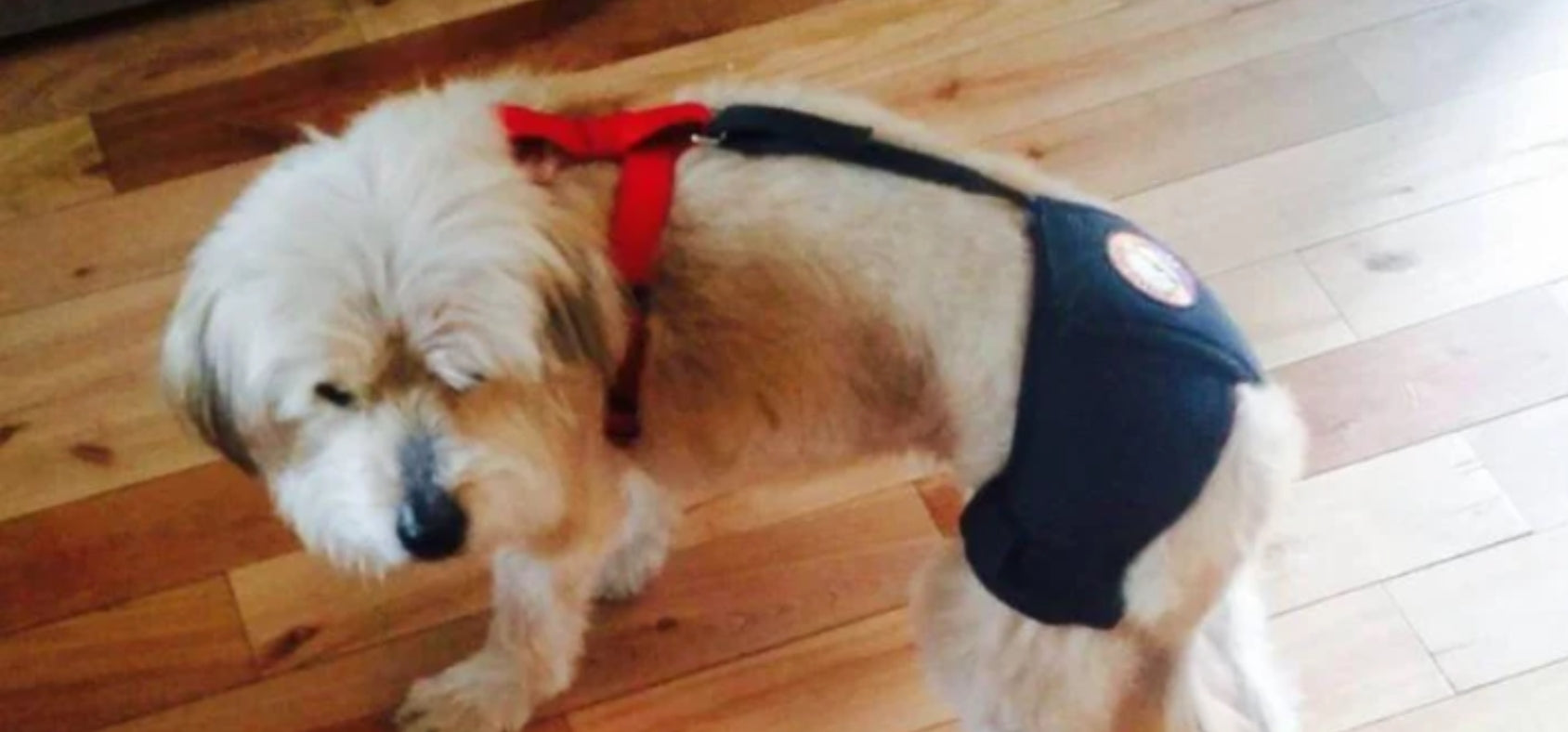
Hip Dysplasia in Small Dogs
Can small dogs develop hip dysplasia?
Unfortunately the answer is yes, small dogs can get hip dysplasia. While it's certainly more common in larger dogs and specific breeds, certain small breeds as well as medium sized dogs can also develop hip dysplasia.
Hip dysplasia in dogs is a very common, painful orthopaedic condition.
Hip dysplasia is one of the most common skeletal diseases in dogs, and affects millions of dogs worldwide. It's one of the conditions that we hear a lot about at Zoomadog.
The ball at the top of thigh bone (femur) doesn't sit well in socket of the hip joint. Hip dysplasia is an inherited condition. Although some breeds are more vulnerable to it than others - e.g. rapidly growing large breeds - any dog can develop it.
Here is a list of smaller breeds that can develop hip dysplasia - In ascending order from most affected to least affected.
Small dogs that can be affected by hip dysplasia:
- Pugs
- Norfolk Terrier
- French Bulldog
- Shih Tzu
- Affenpinscher
- Cavalier King Charles Spaniel
- Poodle
- West Highland White Terrier
- Boston Terrier
- Pomeranian
- Havanese
- Tibetan Spaniel
- American Eskimo
- Cairn Terrior
- Coton De Tulear
- Dachshund
- Bichon Frise
- Yorkshire Terrier
- Cocker Spaniel
- Lhasa Opso
- Tibetan Terrier
Can Hip Dysplasia in Smaller Dogs Be Prevented?
Hip dysplasia is seen as a genetic disease caused by a polygenic trait, meaning that more than one pair of genes is involved. Because genetics play a part in the development of hip dysplasia, unfortunately it's not 100% possible to guarantee your dog won't develop the disease. There are currently no genetic tests for this disorder, and there are other factors, as well as genetics, that contribute to it. The good news is, even if your dog is predisposed to hip dysplasia, there are lots of things you can do to lessen the chances that this disease will greatly impact their quality of life. These include to:
Correct, Appropriate Nutrition
It's important to feed puppies a diet that will satisfy their special nutritional requirements, and that ensures slow and steady growth. This allows their joints to develop properly, so that they're balanced and in synch. Rapid weight gain in puppies can place more stress on the hips, and diets that lack the proper balance of calcium and phosphorous also have a negative impact on bone development. A proper diet also ensures your dog won't become overweight, which is one of the best things you can do to avoid hip dysplasia and joint problems in general, as excess weight puts excess strain on the joints. Talk with your veterinarian about your dog's unique nutritional needs, ensuring you understand what and how much to feed through puppyhood and beyond
Ensure Proper Exercise
During puppyhood and adolescence, exercise is certainly important for many reasons, including to help strengthen your dog's bones, and leg and pelvic muscles. This in turn increases the stability of the hip joint (a plus for helping avoid hip dysplasia). But inappropriate exercise during this period of rapid growth such as too much jumping, too early access to stairs, etc. can actually exacerbate the problem. Give your dog daily exercise while limiting activities that place excessive stress on the joints, such as jumping to catch balls or Frisbees, jumping from high surfaces, or running up and down stairs.
Provide a Quality Joint Supplement
It's never too early to give your dog a joint supplement, as they actually provide the most benefits before symptoms appear. Quality joint supplements are an essential component of canine joint care, providing nutrients to keep cartilage and joints strong and flexible, and keep inflammation down. Chondroprotectors, such as Glucosamine HCL, Chondroitin Sulfate, and Hyaluronic Acid aid in the lubrication and general health support of joints. There are also natural anti-inflammatory supplements out there to help keep painful inflammation of the joints at bay. A combination of GlycanAid HA and an Omega 3, such as Flexerna Omega for Dogs will keep your dog's joints happy and healthy.
For more about joint supplements, click here https://zoomadog.co.uk/collections/supplements
Provide a Quality Dog Hip Brace/ Support
Dog Hip braces are a recommended aid to help dogs that suffer from hip dislocation, mild to moderate hip dysplasia, decreased endurance during activity, hip pain, lower back pain or weakness, and back leg limping. Depending on the dog, they can also help with arthritis in the hips. Dog hip braces are perfect for pre or post operative support, and your dog can continue all normal activity including swimming while wearing it. Dog Hip Braces are also great for hip dysplasia in a puppy or young dogs who suffer from low back pain and early hip dysplasia symptoms.
The brace also supports the lower back and hip area for dogs recovering from surgery or injury. The support and stability provided by the brace helps decrease pain and inflammation while still allowing your dog freedom of movement. While there is no guarantee your small dog won't develop hip dysplasia, following the guidelines above will increase their chances that the disease will have a hugely negative impact on their quality of life.
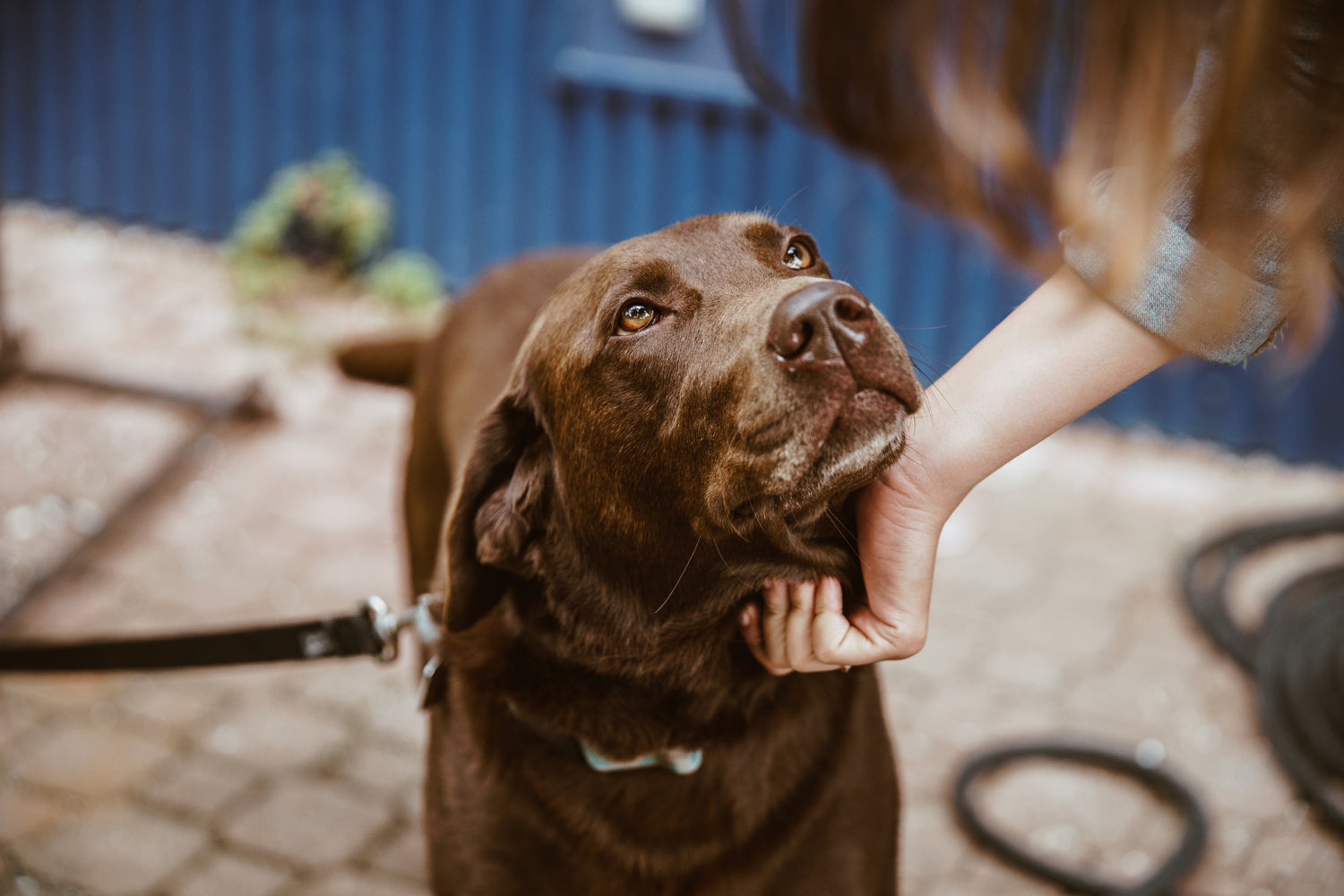
Looking for help with your dog?
We can help find the right solution for your dog
Feel free to give us a call on 01730 622544
or email us at woof@zoomadog.co.uk


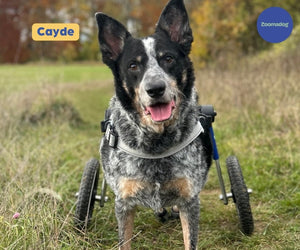
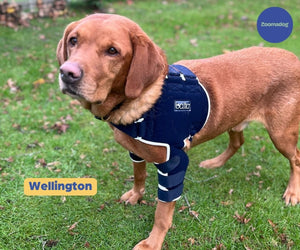
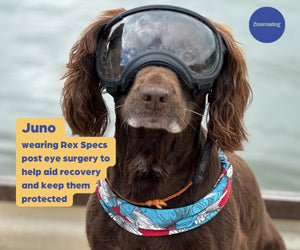
Leave a comment